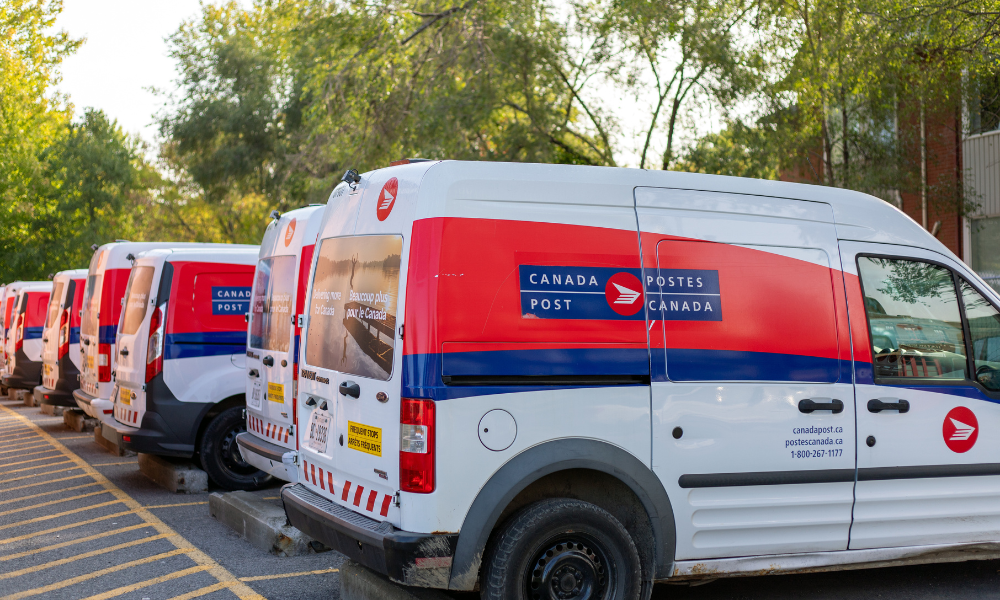
Organization offering higher wage increases 'while responding to the challenges facing the country's postal service'

The clock is ticking as Canada Post and employees represented by the Canadian Union of Postal Workers (CUPW) continue their negotiations for a new collective agreement.
A strike could start on Nov. 3 if they fail to come to an agreement, with the cooling-off period set to expire Nov. 2.
The union had received a strike mandate from its members, with 95.8% of urban workers and 95.5% of rural workers supporting their negotiating committees and ready to strike if necessary, CUPW said, citing a strike vote held between Sept. 9 and Oct. 20 this year.
CUPW is advocating for fair wages, safe working conditions, and the right to retire with dignity while protecting a vital public service that supports communities everywhere.
“We recognize the challenges our employer is facing, and our goal is not to simply make demands, but to work together toward solutions that support the long-term success of our public post office while addressing the real struggles our members face daily," said Jan Simpson, CUPW national president.
The union claimed that negotiators have faced new challenges amid the negotiations stemming from changes in postal work, such as the ongoing surge in parcel volumes which has “heavily impacted postal workers”. There are also unresolved issues from previous bargaining rounds, the group said.
Last week, hundreds of Canadian correctional officers in different parts of the country rallied in front of the regional headquarters of Correctional Services Canada (CSC) on Thursday to ask for better contacts from their employer.
Canada Post has presented new global offers that “protect and enhance what’s important to CUPW-represented employees – including offering higher wage increases – while responding to the challenges facing the country’s postal service,” said the employer.
The proposals include:
“With these new offers, Canada Post has also proposed to submit several items to binding-interest arbitration,” said the employer. “The proposal would allow a neutral third party to decide a reasonable path forward on key items that are important to both sides.”
The union and the employer have been bargaining new contracts for its two largest bargaining units – the Urban Operations unit and the Rural and Suburban Mail Carriers (RSMC) unit – for almost a year.
A previous report noted that Canada Post won’t have workers collecting firearms under Ottawa’s buyback program.